
4 minute read
GREATEST OPERA HITS
Saturday 28 September 2019 / 7:30PM Discovery
SPONSORS
Advertisement
Chorus Sponsor: Borak Forte Programme
PROGRAMME
Jayce Ogren, conductor Anne-Marie MacIntosh, soprano Charles Sy, tenor
Calgary Philharmonic Chorus
Mozart Overture to Le nozze di Figaro, K. 492 Berwald Overture to Estrella de Soria 4'
8'
Handel Da tempeste il legno infranto from Giulio Caesare HWV 17 6' Verdi Caro nome from Rigoletto 5' Tchaikovsky Kuda, Kuda vy udalilis from Eugene Onegin 5' Stravinsky Here I stand from The Rake’s Progress 3' Puccini Intermezzo from Manon Lescaut 5'
Intermission Triumphal March + Ballet from Aïda 11'
20'
Wagner Feierlicher Zug zum Münster from Lohengrin 4' Rossini Si, ritrovarla io giuro from La Cenerentola 7' Gounod Je veux vivre from Romeo et Juliette 4'
Stephen Paulus Pilgrim’s Hymn from The Three Hermits 4'
Puccini Coro a bocca chiusa from Madama Butterfly 3' Donizetti Esulti pur la barbara from L’elisir d’amore 6' Verdi Brindisi from La Traviata 3'
Bernstein Make Our Garden Grow from Candide 5'
GREATEST OPERA HITS
Opera is a unique, multi-faceted art form. Where else can your heart and mind be enraptured by equal measures of music and drama? This concert brings you many of opera’s most glorious and beloved melodies, drawn from nearly 300 years of repertoire.
Opera appeared in Italy about 1600. The selections from Handel’s Julius Caesar in Egypt (1724) and Mozart’s The Marriage of Figaro (1786) demonstrate the early schools of the baroque and classical periods, respectively, when emotions were less open than they became in later operas.
The 19th century, the era of Romantic art, produced huge quantities of opera. Many of them are still popular today. In fact, they are the foundation of opera in general. Italian composer Gioachino Rossini is best known for his comic operas. At this concert you will hear an aria from La Cenerentola (Cinderella, 1817). Don Ramiro, Prince of Salerno, pledges that he will find the woman he has just fallen in love with, but who has disappeared.
Rossini’s Italian contemporary Gaetano Donizetti composed in the same style of opera as Rossini, known as Bel canto (beautiful singing). The plot of L’elisir d’amore (The Elixir of Love, 1832) tells how Nemorino, a good-hearted peasant lad, wins the hand of Adina, a wealthy landowner.
For countless listeners, the name of another Italian, Giuseppe Verdi, virtually defines the word “opera.” His skill at marrying drama and music is unsurpassed in the history of the art. On the bill are unforgettable melodies from three of his most popular works: Rigoletto (1851), La traviata (1853) and Aïda (1871).
The title character in Aïda is an Ethiopian princess, held captive as a slave in Egypt. She is torn between her feelings of patriotism and her love for Radames, an Egyptian general. In Act Two, the Egyptian army under
Jayce Ogren, Anne-Marie MacIntosh and Charles Sy biographies on page 21 Calgary Philharmonic Chorus biography on page 8




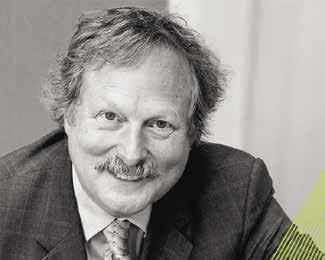
Radames returns in triumph after defeating the forces led by Aïda’s father. The spectacular procession of captured treasure and slaves is accompanied by an appropriately pompous march.
Giacomo Puccini was Verdi’s successor as the great Italian opera composer. This concert includes excerpts from his first great success, Manon Lescaut (1893), and one of his most poignant scores, Madama Butterfly (1904).
Representing German opera is Richard Wagner, who revolutionized the art form with his grandly scaled, super-emotional compositions. Elsa’s Procession to the Cathedral comes from Lohengrin (1850). To this solemn music, two of the principal characters approach the church where they are to be married.
Representing the gracious and tuneful school of Romantic French opera is Charles Gounod’s Romeo et Juliette (1867). Juliette sings this spectacular aria in waltz time.
From Sweden comes music from Franz’s Berwald’s Estrella de Soria (1862). He introduced this story of love and betrayal among Spanish royalty of the 15th century with a suitably turbulent and lyrical overture.
The concert includes two pieces by Russian-born composers. In a heartfelt aria from Pyotr Tchaikovsky’s Eugene Onegin (1878), Lensky, on whose fiancée the heartless Onegin has made unwelcome advances, awaits what proves to be a fatal duel with Onegin. Igor Stravinsky’s The Rake’s Progress (1951) follows the adventures of Tom Rakewell, an 18th century English rogue. In this bold aria, he proclaims his selfish philosophy.
Two pieces from American operas complete the bill. Make Our Garden Grow is the heartening finale of Leonard Bernstein’s satirical 1956 operetta Candide, about a naïve young man’s search for meaning in life. Stephen Paulus based The Three Hermits (1997) on an old Russian folk tale. The sweet, gentle Pilgrims’ Hymn is the finale.
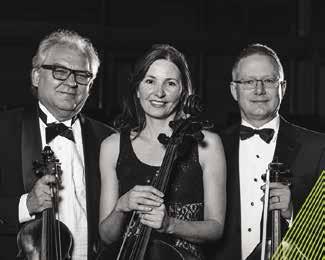
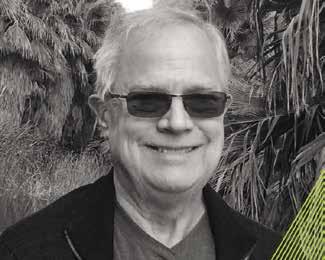
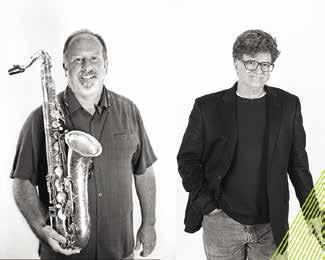
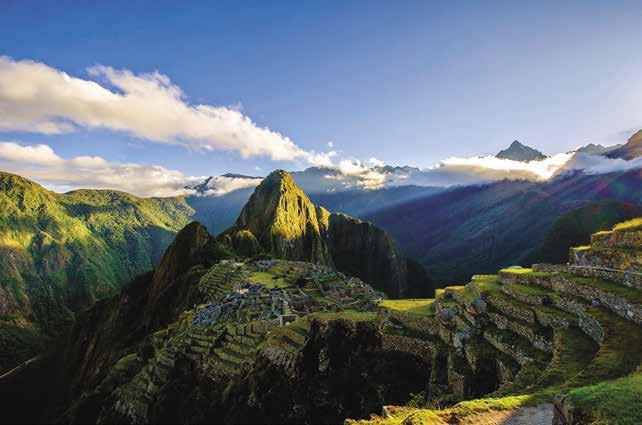
Programme Notes by Don Anderson 2019
BOX OFFICE
For your convenience, visit us at our new CORE Box Office for exclusive offers. Open seven days a week!
Hours:
Monday to Saturday 10AM to 3PM Sunday 12PM to 3PM
Third Floor The CORE Shopping Centre 324 8 Avenue SW
calgaryphil.com | 403.571.0849 ORIGINAL RAGS
Ragtime music with pianist Charles Foreman
9/21
DVOŘÁK – MORAWETZ CONNECTIONS
UCalgary String Quartet
10/25
THE TENOR SAX HERITAGE PROJECT
With Jack Wilkins, Jeremy Brown and more
10/28
LYRICAL PERSUASION
Showcasing compositions by William Jordan
11/23
Join us this fall for an exciting line up of classical music and jazz concerts!
Tickets and info:










